Local Chapters
Established in August 2015, the London Chapter aims to help Fung Scholars and Fellows based in the U.K to connect with each other and members abroad. Through regular gatherings and activities, the Chapter encourages members to learn, grow and give back to the local community. Scholars visiting the U.K. for their studies or work are welcome to connect with the network!
Please contact us if you are interested in being part of the London Fung Scholars Committee.

Fung Scholars Stories
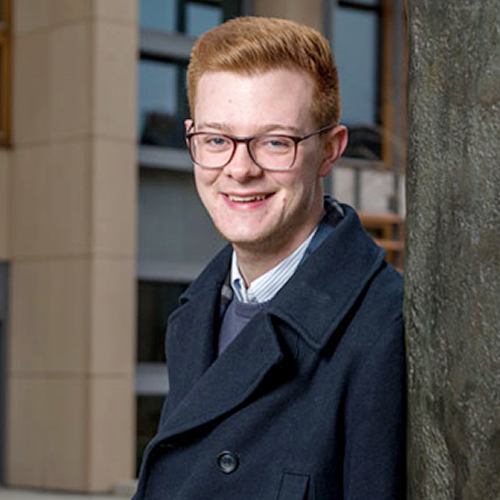 Adam KNIGHT
Adam KNIGHT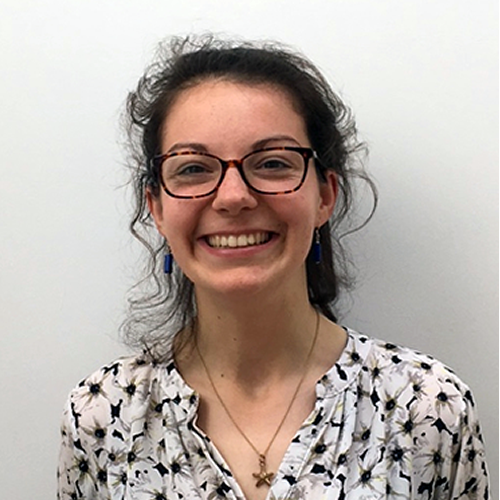 Alice MINGAY
Alice MINGAY Humphrey PATON
Humphrey PATON Isabel GALWEY
Isabel GALWEY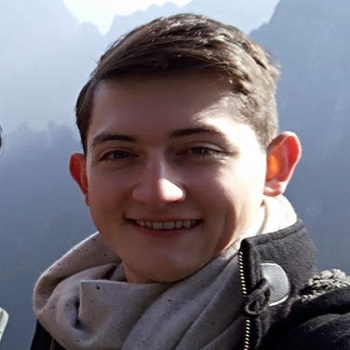 Samuel WEJCHERT
Samuel WEJCHERTAdam KNIGHT The University of Oxford | to China
Article courtesy of https://www.campaign.ox.ac.uk/impact-stories/educating-the-global-citizens-of-tomorrow
Whilst studying for his undergraduate degree in Oriental Studies (Chinese), Adam Knight was offered an incredible opportunity: to spend a year abroad at Peking University, with many of his expenses covered. 'I didn't know about the scholarship initially,' says Adam, 'but it was an extremely pleasant surprise.'
Adam was the recipient of a Fung Scholarship – one of more than 80 offered each year to students travelling between Oxford, China and Hong Kong.
For students reading for a BA in Chinese, like Adam, these scholarships can be a lifeline. The generous funding provided covers language school fees and contributes to living and travel expenses. 'Having that financial support really made a difference.' Adam Knight
'The money was extremely useful for taking extra Chinese lessons,' explains Adam, 'as well as enabling me to travel around China. It meant I could really experience the country while I was out there.' By relieving the heavy financial commitment that spending a year abroad can entail, Fung Scholars are free to fully engage with China in an academic, cultural and social capacity during their stay.
Now enrolled on an MSc course at the Oxford Internet Institute, Adam says of his first year as an undergraduate: 'I came to Oxford with zero Chinese, so initially it was a bit tough in terms of just trying to keep my head above the water. It doesn’t matter how good or bad your Chinese is in that first year though, once you're in the country it all balances out.'
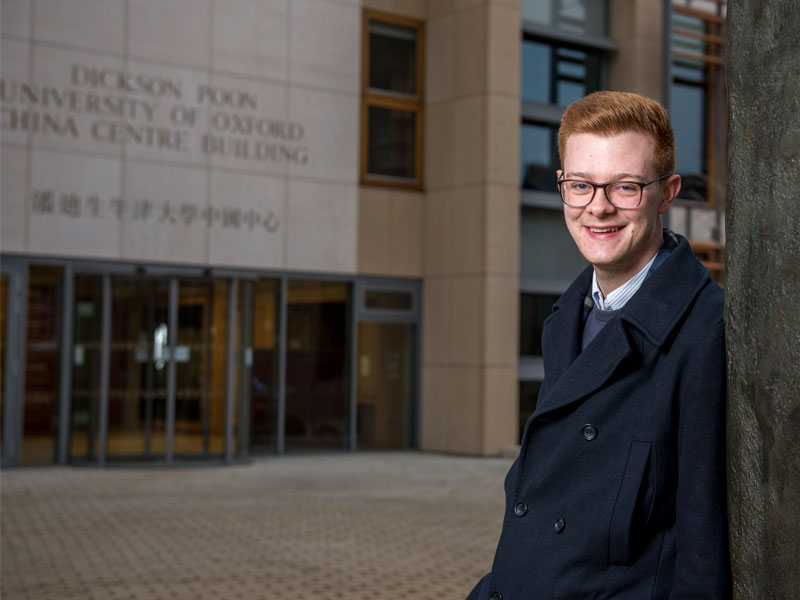
Adam Knight in the University of Oxford China Centre. Photo by John Cairns.
Whilst in China, Adam hired a private language tutor, studying for six hours a week at his flat. 'Learning in that intimate environment really helped not only my language skills, but also my understanding of the culture. My Chinese would be nowhere near the level it is now had it not been for my Fung Scholarship – having that private tuition was very important to me.'
In Adam's own words, increasing his language ability opened up a 'world of new opportunities.' He chose to focus his studies on the Chinese Internet – first writing his dissertation on it, and now researching it for his MSc. 'All of that stems back to the time I was in China; just being out there and seeing the way that ordinary people interact with the Internet, and how it's adopted and adapted in everyday situations.'
'Because it's the Internet and because it's China, it's changing all the time. It keeps me on my toes.' says Adam Knight.
China had a strong influence on Adam in another way too. Shortly after returning to the UK in 2013, he joined forces with course-mate and fellow Fung Scholar James Campbell to establish Tong Digital, an e-commerce company that specialises in helping foreign brands maximise their online retail sales in China. 'It was a challenge,' says Adam. 'We still had a year left of our degrees, so we had to work fairly intensively over the summer between our third and fourth year to try and get things off the ground.'
Their efforts paid off though, and Adam and James have been running the company full-time since graduation. They now employ eight people, and plan to expand into the burgeoning Chinese mobile and social commerce market over the next 12 months.
'I certainly never looked back. I feel like I made the most out of my time in China, and out of my degree.' Adam Knight
Although it's now been several years since his first trip to China, Adam's connection with the Victor and William Fung Foundation has endured.
Through annual conferences and city-based communities known as Fung Scholars Local Chapters, current scholars and alumni of the Fung Scholarships have the chance to meet, exchange ideas and discuss the pressing issues of the day. 'It's a great opportunity to meet like minded individuals,' says Adam. 'Because a lot of the Fung Scholars are fairly entrepreneurial, it's really quite fun to hear what ideas people have got and where they plan to go with things.'
Until a bicycle accident forced him to withdraw, Adam was due to speak on an entrepreneurship panel at last year's conference in Hong Kong. 'It was such a shame because it's a great way to stay in touch with the foundation,' says Adam. 'I hope that one day they'll have me back!'
Alice MINGAYFS2016-17, The University of Oxford | to China
This year, I have been studying a variety of courses at Peking University to help me to improve my Chinese, ranging from translation to oral to classical Chinese. They have been both interesting and challenging, teaching me a lot both about the relevant topic and about Chinese culture and society more generally. Beyond class, I have also tried my hand at calligraphy for the first time, and was regular member of the karate society, even taking an exam to move up a belt! I also took my chances to travel this year, including to Xi’an, climbing several of the sacred mountains, and celebrating Chinese New Year with my Chinese friend’s family in Hunan this last one in particular will stay with me as one of the highlights of the year. Finally, as I hope to live and work again in China in the future, I sought out three different work experience opportunities to try to understand the different styles of companies and work, as well as starting to figure out what I might want to do.
This immersion, both from studying at Beida and more generally living in Beijing, has been an opportunity to improve my Chinese such that I just could not do in the UK, and as thus has been immensely helpful to my studies. Beyond this, to be able to build on the understanding I had begun to have from my studies and reading, the friends I have made – in particular Chinese, Korean and Mexican – and experiences I have had has forced me to understand a mind-set that is often very difficult to my own, and deal with a range of situations that took me out of my comfort zone. I hope this has made me into a more open-minded and independent person, as well as building a bank of experiences I can draw on in the future. For several years now, I have known that I wanted to spend a significant amount of time in China, and as such I am so pleased to have been able to do this as a part of my studies.
Many thanks to the Victor and William Fung Foundation for the financial support towards my studies in China, and for their continued work in this area. Intercultural understanding, friendships and language proficiency are perhaps more important now than ever, and so it is fantastic that they provide such valuable support to students with a strong interest in this fascinating country, and prevent additional costs from acting as a barrier.
Humphrey PATONFS2016-18, The University of Oxford | to Beijing
During my time in China, I was able to dip into a huge wealth of cultural phenomena. At the start of the year, I tried joining a few societies at Peking University. I attended the Tea Appreciation Society which I found particularly interesting and have developed some rather helpful basic knowledge about Chinese tea. My going to their events also proved to be quite helpful because I was able to put a friend of mine, an entrepreneurial Japanese in touch with the club. His story is particularly interesting because he is part of Japan’s Korean ethnic minority and it was through his Minorities School in Japan that he was brought to learn Chinese in Jilin, where he mixed with the Chaoxianzu. His dream is to bring his knowledge of Chinese tea back to Japan with him and start off into that world. In a strange way I felt an affinity with his story because while out in China I naturally felt a little foreign in my surroundings, and from the sounds of things my Japanese friend was very familiar with the situation. From an early age, he had learnt to balance two cultures and two identities in his mind, and I felt that he was someone I could learn from because of this. Also as he couldn’t speak a word of English we would be forced to converse in Chinese, which I thought a very good idea. And so, during that first semester the key memories of note were the dinners or events I went to with my Japanese friend and the enormous numbers of Chinese friends he would introduce me to at these events. However, I did try to explore a few other avenues. I looked into making friends at the squash club, learning Chinese medicine, and attending a discussion at Peking University. The university laid on a number of extracurricular things of interest but the most interesting I found were the activities I laid on for myself with the university’s help.
I returned to China after the New Year break and my interests and focus over the break shifting to trying to make the Chinese I was learning more useful to a future I’m attempting to build for myself in the world of gemstones. At Peking University, with the help of a professor I befriended at another local university, I managed to enrol myself on a course in gemmology taught in Chinese. At first it was tough to keep up but gradually I got used to the specialist language and built up a bit of knowledge in coloured stones, primarily the big three: ruby, sapphire, and emerald, as well as improving on my Chinese.
With this knowledge, I was able to explore a newly discovered emerald deposit in the west of the country and make friendships that should hold me in good stead in the emerald industry in the future. What’s more the experience has helped carry me through a summer job where I’ve been lucky enough to handle communication on a number of sapphire purchases made by a Taiwanese jeweller with a Sri Lankan friend of mine. Still though, the thing I actually found most rewarding about those classes was the opportunity to take classes alongside other Chinese students on a topic of mutual interest. It was during these classes that I felt that feeling of foreignness fade the most, while I was out in Beijing. This is the experience that I am most grateful to the Victor and William Fung Foundation, as without your contribution this very colourful life that I’ve lived over this past year would likely have been far less colourful and far less rewarding. I now feel as if I have properly experienced China at a grassroots level, and engaged in discussions with people I would likely never have met. Thank you so much for providing this scholarship that has given this Oxford year group so many opportunities to experience some fascinating cultures.
Isabel GALWEYFS2017-18, The University of Oxford | to Beijing
I put the money I received from the Victor and William Fung Foundation towards accommodation and living costs during my year abroad in Beijing, China. I studied a two-semester course at Peking University, taking classes in spoken Chinese, modern Chinese literature, Classical Chinese and English-to-Chinese translation. In my free time during my first semester I also directed and produced a short promotional documentary about international students’ life at Peking University, with the help of PKUTV, the PKU film society, PKU’s Western Students Association and the University’s International Students’ Division. During my winter vacation, I completed a month-long internship with AsiaWorks, an international production company based in Beijing, during which I produced a short feature piece on Beijing’s famous art zones. These two projects helped to boost my communication and leadership skills when working with cross-cultural teams, as well as my technical and creative skills. Another interesting aspect of this year, academically, has been completing the research projects assigned to us by our professors back in Oxford. During our first semester, I wrote two essays: an analysis of a Beida exhibition featuring the Dunhuang manuscripts and cave art; and an exploration of the figure of Sun Wukong in Chinese popular culture. In our second semester, assignments were broader in scope, incorporating interviews, surveys and even creative writing: for me, the first was a short prose piece reconstructing the lives of refugees in Shanghai during the Second World War; and the second was an ethnography project exploring the attitudes of young Beijingers towards language cinema.
This year I’ve also taken the opportunity to travel in China, getting to know the country beyond my place of study in Beijing. These trips included taking part in a class trip to Zhejiang, spending a weekend in Shanghai and volunteering at an English-language school in Guangxi. China is an incredibly vibrant and diverse country, and no one part of it is representative. For this reason, having the chance to make trips outside the capital has helped me immensely in my learning beyond the classroom - some of my best Chinese speaking practice has been done on long-distance trains! Organising these trips and maintaining a balance with my academic work has also helped me to improve my organisational and time management skills.
I have had a wonderful year in China. Although living far away from home brought its share of difficulties, it was worth it for the learning opportunities and experiences I gained. I’m so grateful to the Victor and William Fung Foundation for helping to make this year possible; I would like to offer my heartfelt thanks for the financial support which has been offered. I very much hope to be able to return to East Asia soon and continue to learn about this inspiring and complex region.

Samuel WEJCHERTFS2017-18, The University of Oxford | to China
My year abroad in Beijing was both an exciting and rewarding learning experience. During the second year of my Oxford University undergraduate course, I had the opportunity to study at Peking University for an entire academic year. This long stretch of time, coupled with the generous financial help from the Victor and William Fung Foundation, allowed me to take part in a variety of activities. Here are a few of the most memorable:
The language partner arrangement allowed me to quickly develop a close relationship with one of the local Chinese students. I have fond memories of our many weekend outings, including watching an opera at the National Centre for the Performing Arts, visiting the Rate Gate Gallery and exploring the countless rooftop bars in the Sanlitun nightlife district! A trip to my language partner’s home in Hunan during the Chinese New Year was particularly memorable as it opened my eyes to life outside China’s big, cosmopolitan cities.
Acting as class representative for my Oxford classmates provided me with many opportunities to develop my leadership skills. Apart from delivering the opening speech in Chinese for the launch of our year abroad programme, I had the responsibility of liaising with teachers on behalf of my classmates if they had any issues or complaints. I also compiled a year abroad handbook for future Oxford students before our programme ended; this task made me realise how familiar I had become with living in China after just a year.
Throughout the year abroad, I completed an internship at the Beijing International Society, a non-profit organization that organizes two to three lectures per month at various embassies across Beijing. This work gave me unique access to prominent China-related scholars and Beijing-based diplomats. My top highlights include attending a formal dinner with the American ambassador, as well as organizing a one-to-one afternoon chat with the Irish ambassador to better understand the world of diplomacy.
The Fung Scholarship played an important role during my year abroad. Indeed, it helped me make the best of my time in China. Instead of worrying about financing my interests, I could focus more on enjoying the activities I took part in. I feel extremely grateful towards the Victor and William Fung Foundation for giving me the opportunity to experience different cultures and environments early in my student career. In the future, I hope to fulfil the foundation’s aim of nurturing world leaders by better connecting China with the rest of the world—in whatever field that may be.
Samuel and his language partner

Committee
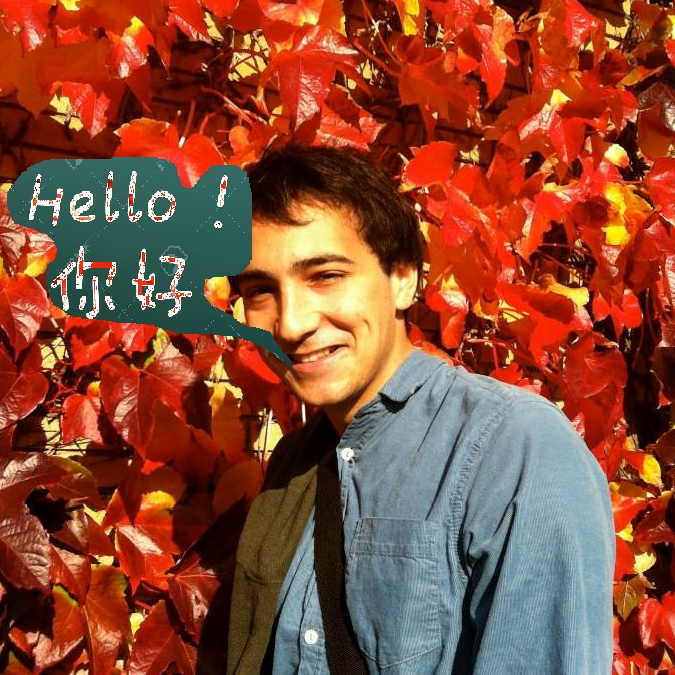 Christopher LAMBERT
Christopher LAMBERT Robert SNELLGROVE
Robert SNELLGROVEChristopher LAMBERT
Chris has been a Fung Scholar since 2013, when the award facilitated him teaching English at Tsinghua University. Following a BA in English literature and language at Oxford University, he studyied for an LLM at the University of Law in London. He has experience with various startups, the latest of which as co-founder of media site CABAL.digital.
Robert SNELLGROVE
Rob was awarded a Fung Scholarship in 2012. After studying engineering at Oxford University, he used the scholarship to take part in a programme teaching English at Tsinghua University in Beijing, and then stayed on to study Chinese for a term. On returning to the UK, he worked for a venture capital fund, and has been working as a software engineer in London.






